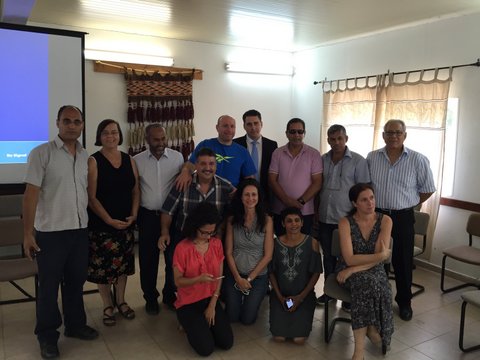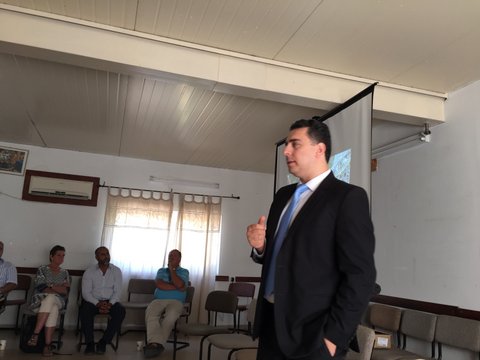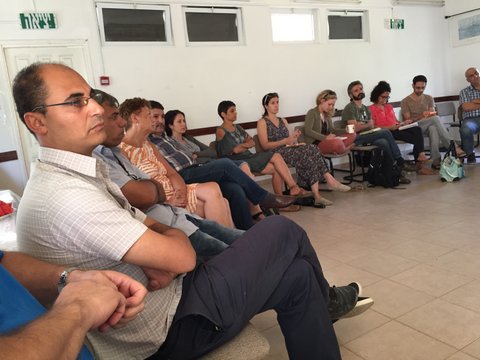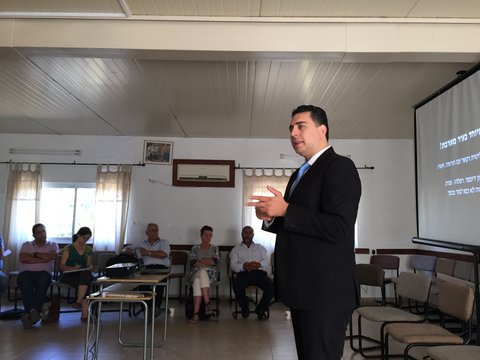In framework of SFP course for change agents in mixed cities, a lecture on legal aspects affecting Arab population
On Friday, July 24 the SFP convened the sixth meeting of its course for change agents in Israeli mixed (Jewish-Arab) cities. Some 30 Jewish and Arab leaders and activists from six mixed cities met. The group is very active also outside the official sessions of the course. In May, the group met to mark Nakba Day in Jaffa, for which a member of the group had prepared an exhibition.
In the same meeting, Attorney Kais Nasser gave a lecture on legal aspects affecting the Arab population in mixed cities: processes of dispossession, destruction and gentrification. Nasser presented examples from cases he had handled. The participants expressed appreciation for his highly useful and instructive presentation.
The lecture was reported on at the popular Al-Arab news site that serves the Arabic-speaking population.
The Course, Its objectives and Participants
The lecture was given in the framework of a School for Peace change agents program for key persons in mixed cities, including council members and community activists who see themselves as having a future role in the nation’s leadership.
The program deals with civil society conflicts around the world, with sustainable solutions and models of conflict management at the micro and macro level. The program provides an opportunity to establish a dialogue between participants, to create working relationships, to strengthen the participants’ leadership qualities and their commitment towards promotion of peace and equality. The program brings to the forefront the extensive knowledge of the participants and places an emphasis on joint endeavors for social change.
We envision a leadership whose world view and methods of problem-solving is not based on militaristic and security perceptions, but on perceptions of peace, negotiation and social justice; leaders with the ability to make persuasive arguments based on new ideas that run counter to deeply held convictions; leaders who have the courage to stand up for their ideas and values; leaders who inspire the public to trust them to institute painful changes.
One of the course objectives is to examine conflicts around the world and to see which solution-mechanisms can be implemented in Israel. Other objectives are: to create and manage shared spaces for Arabs and Jews in mixed cities; to engender a sense of security and joint ownership of public spaces, and to enhance networking with other mixed cities. Our primary objective is to create a group that will be committed to raise its voice and take action upon every incident of racism and violence between Arabs and Jews; a group that will provide an effective and functional response and will handle incidents before they begin to escalate.
The program will last twelve months, meeting once a month. There was a three day opening workshop in Wahat al-Salam ~ Neve Shalom, which is being followed by monthly six hour meetings held on Fridays. The course will also include study tours in the field. At the end of the year there will be a two-day closing workshop in Wahat al-Salam ~ Neve Shalom.





